
10 minute read
CCS Santiago de Chile
Cultural Centre of Spain in Santiago
In April 2018, the Cultural Centre of Spain in Santiago de Chile (CCSantiago) celebrated its twenty-fifth anniversary, having accumulated thousands of experiences in the world of culture. CCSantiago was created in the (southern hemisphere) autumn of 1993 and has accompanied the people of Chile in their transition to democracy and the irrevocable opening up of their country to a globalised world. From its headquarters in Avenida Providencia, the Centre has witnessed a multitude of political, social and cultural changes, making Chile what it is today. The CCSantiago management team has been and remains committed to placing culture – an essential element of human development – at the centre of the debate, and to promoting artistic creation and production without restraint. Our aim is to become a meeting point where Spanish, Chilean, European and Ibero-American cultures may converge in harmony. This challenge can only be achieved through the day-to-day work of a team with extensive experience, and by continually reviewing the role we wish to play in the dynamic and constantly changing cultural scene in Chile.
Our ties with the local context
Among the strengths of CCSantiago are the alliances it has established with public and private agencies and the work carried out in conjunction with cultural and social institutions and the local community. These joint efforts have contributed to the development and cohesion of the sector, both in the Metropolitan Region and elsewhere in Chile, thus helping achieve the cultural decentralisation and democratisation needed in the country. Today, CCSantiago is respected and highly valued by all its counterparts, a situation that has enabled it to enter into cooperation agreements with like-minded institutions throughout the country and in other parts of Latin America. This associative movement has proven to be one of the Centre’s most valuable resources in the current period of budget constraints, and international cooperation for development is increasingly viewed both as a proper basis for establishing inter-institutional relations and the most effective way of doing so.
The physical space
CCSantiago, a bi-national cultural institute, is one of the longest-standing institutions of its type in Chile, its direct predecessor, the Chilean Institute of Hispanic Culture, having been founded in 1948. The current refurbished headquarters, located in the Santiago neighbourhood of Providencia, occupy a space that is open to all and which plays a fundamental role in the development and promotion of art and culture and in artistic creation and knowledge transfer. The building has a usable space of 1,500 square metres, containing three exhibition spaces (Room 927, the Emilio Ellena Hall and The Curve) with well-defined curatorial criteria, together with a 150-seat theatre to present the performing arts, music and film, and where discussions, lectures and seminars are also held. In addition, there is a media library, a games library, a space for workshops and small-format meetings (The Cloud), a laboratory for interdisciplinary creation and exchange (MateSurLab) and an amphitheatre-shaped patio with landscaped gardens (Green Island), which is ideal for outdoor activities.
The cultural schedule
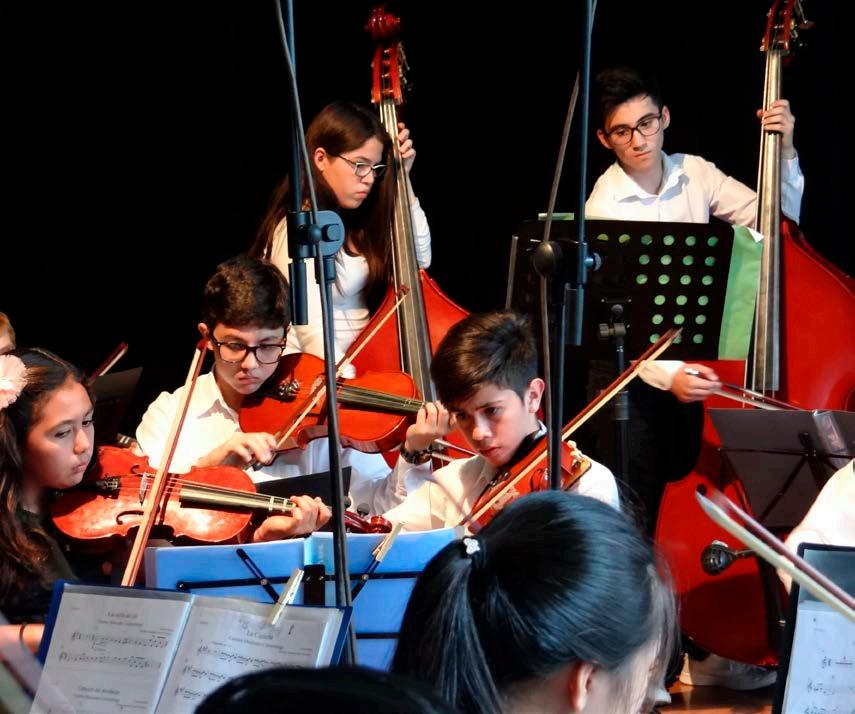
1. Workshop of Audiovisual Creation (ACERCA Programme) given by the Spanish director Rodrigo Sorogoyen. CCSantiago, April 2017
2. Children’s and youth orchestras
1
2 and thought, film and media education, with a scope extending beyond its physical boundaries. Year after year, our aim is to remain a reference-level organisation in the cultural world, a place where the latest trends can intermingle with more traditional formats, where dormant areas of creation can be brought to life, where controversies can be debated and where memory as part of our heritage is cherished. By fostering and generating our own content and by seeking out visionary proposals, our aim is to provide a high-quality diverse, plural, inclusive and freely-available range of cultural possibilities. To achieve these goals, we have devised a short-medium term management plan, which is comprehensive and coherent over time and in line with the strategic objectives that define our lines of action and cultural programming.
Our impact
What kind of Spanish culture do we wish to export? What cultural image do we wish to project abroad? Although the cultural and social realities of each country – and therefore, of each Cultural Centre – are diverse, it is essential that we share the fundamental lines of action and make a unified response to these questions. As a Network of Cultural Centres, this is our goal, in accordance with the guidelines of the Central Services of the Spanish Agency for International Development Cooperation (AECID). Indeed, one of the greatest assets of Spain’s cultural action abroad is its Network of Cultural Centres. The coordination achieved via the Network makes each Centre a local partner, whose impact is felt throughout Latin America. Although the promotion of Spanish culture, cultural cooperation, and culture for development are the fundamental pillars of our work, the role of CCSantiago has changed in recent years. Formerly, the Centre was almost the only European point of reference in the Chilean cultural scene, but today it shares this space with a large number of actors and institutions, public and private, that have greatly enlivened the artistic and cultural landscape. In this dynamic scene, the constant need for adjustment requires us to dedicate regular periods for reflection, involving the whole team, in order to scrutinise the context of our activities and the
3
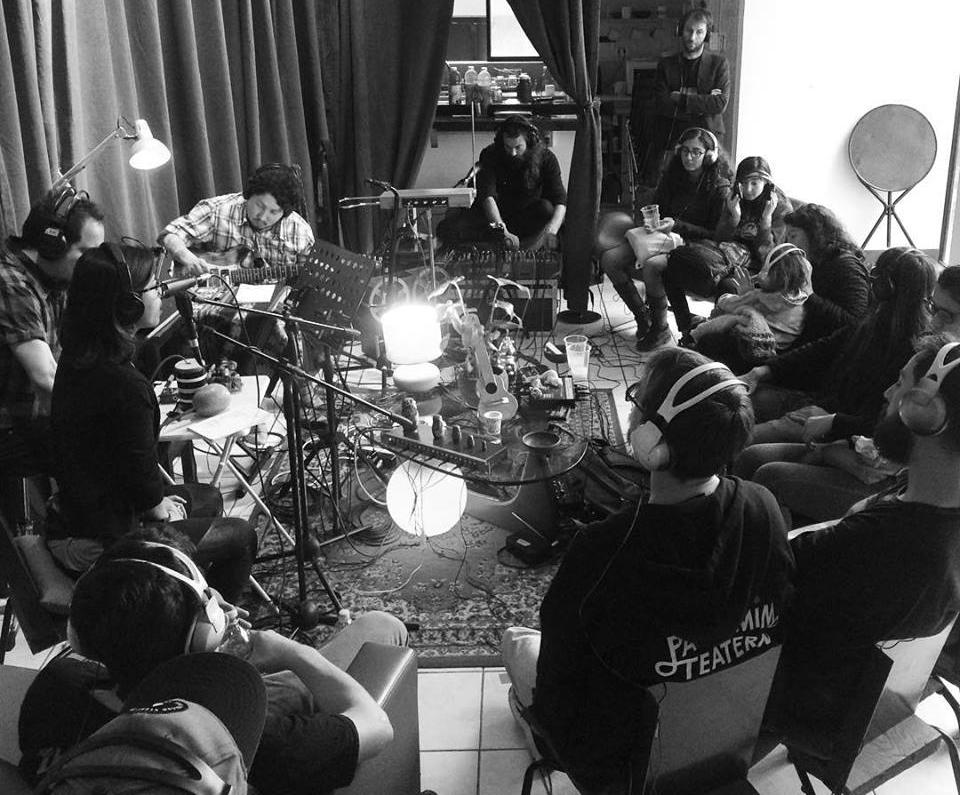
3. Poetry and Music Festival, Living Sound and Tracalaxia, 2018
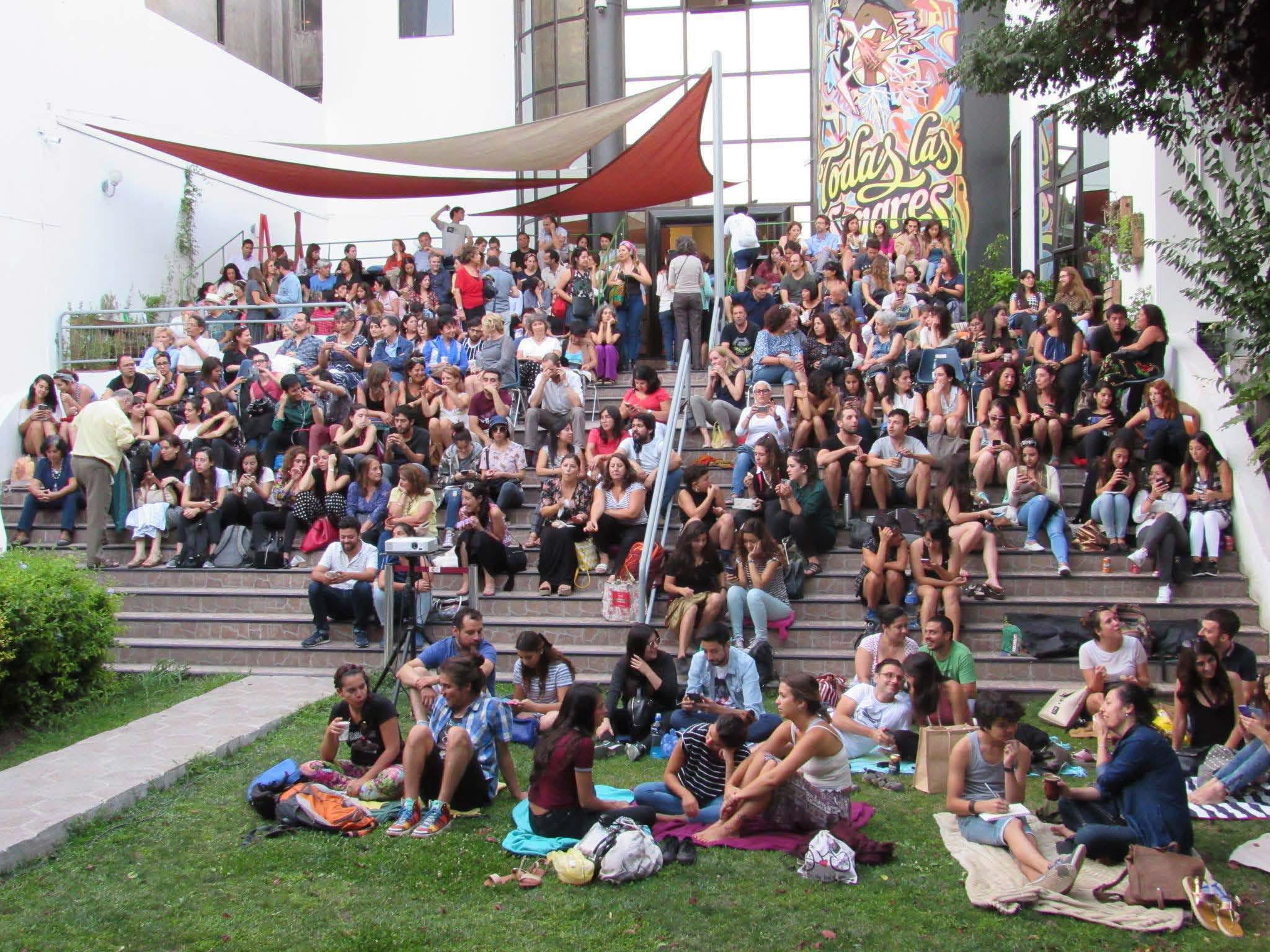
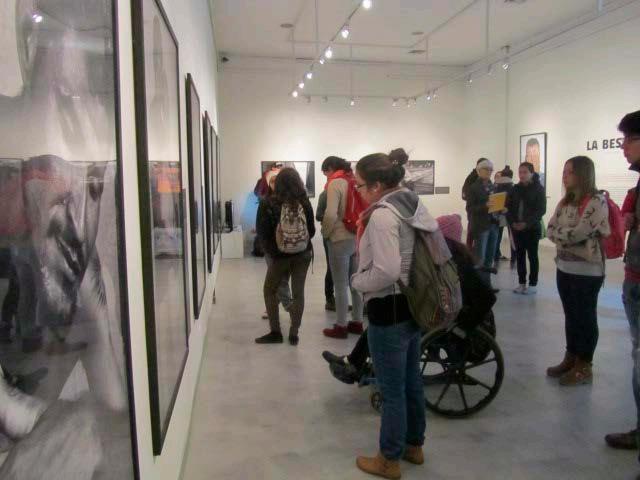
4
6
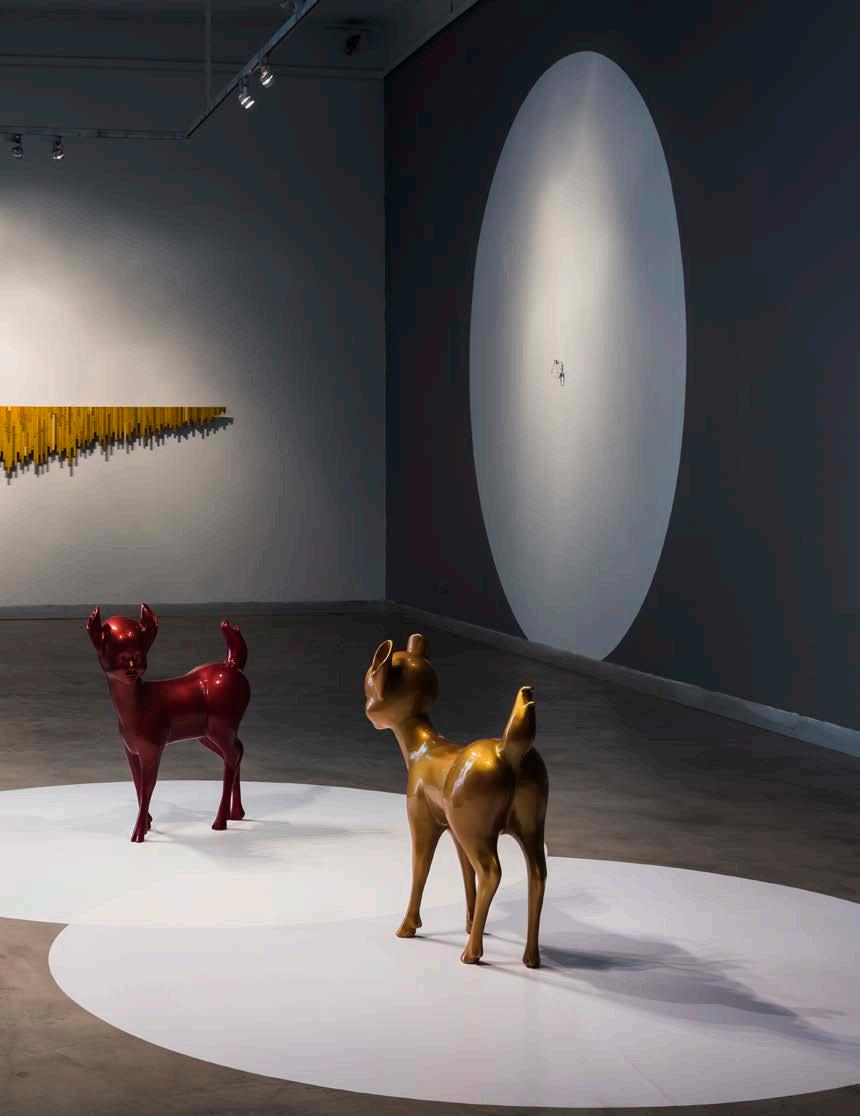
4. Cine a la Fresca (Outdoor Cinema), January 2018
5. Exhibition La Bestia (The Beast), photographs by Isabel Muñoz, May 2015
6. Collective exhibition, Donde se curva el horizonte (Where the horizon curves), 2016 relentless changes taking place, spurred also by the constantly-evolving requirements of artists and creators. This might be one of the most important challenges we face as a team: the need to be expectant, to respond to changing circumstances and demands with appropriate strategies, while remaining consistent with the goals set for our institution and our Network.
New challenges
The new universe that is beginning to take shape is forcing us out of our comfort zone, obliging us to take sides in the tensions between art and science; to promote creation and to connect with the community via artistic residencies; to emphasise the importance of research, in all its aspects (phases, formats and materials); and to keep at the forefront of our attention the 2030 Agenda Sustainable Development Goals, highlighting their importance and working towards these ends. And underlying and overarching all these endeavours are our fundamental, transversal values: inclusion, gender fairness, awareness raising, the environment, the defence and promotion of cultural rights, the defence of minority populations and the proper management of knowledge. We believe that knowledge transfer is always a two-way path. Our ultimate goal is to be acknowledged by the community as somewhere that is open to all, from where we can promote crossborder, cosmopolitan dialogue. Among the most valuable elements of CCSantiago are its people, who lend it its soul. The presence of committed and empowered human capital is of crucial importance, enabling us to effectively coordinate the opportunities and resources offered by the environment, and to weather the storms that buffet our progress. The resulting cultural project, thus, is consistent, in continual growth and attentive to new challenges as they arise.
Spain, in the heart of the Mapocho Station Cultural Centre
Arturo Navarro
Executive Director, Mapocho Station Cultural Centre
A shared concern for culture has brought many paths together, from the ambassador’s office to the Directorate meeting room at the Mapocho Cultural Centre. The first symbol, when the Centre was merely a project, was the presence of Ambassador Pedro Bermejo among our founders. Shortly afterwards came the visit of the King and Queen of Spain, Juan Carlos and Sofia, who enjoined us to take good care of the two palm trees they had planted. A plaque commemorating the occasion was set beneath the leafy boughs. Not far from these palm trees was the old training workshop, where stonemasons, welders and gardeners learned their crafts in what was to become the Parque de los Reyes (Monarchs’ Park). The building, which had previously belonged to the stationmaster at Mapocho, is now the headquarters of the Chilean Foundation for Youth and Children’s Orchestras (FOJI). The most striking change to the Centre took place in 1993, with the inauguration of the Letters of Spain season, dedicated to Spanish literature. Thousands of books were displayed and the festival was attended by dozens of distinguished visitors, including Jordi Solé Tura, the former Minister of Culture of Spain, and the flamenco dancer Cristina Hoyos. With this festival, democratic Spain celebrated the return of democracy to Chile. Another landmark occasion took place in 2009, when the Queen herself presented us with the Reina Sofia Cultural Heritage Award. Since then, Mapocho has received innumerable visits, has witnessed annual readings of Don Quixote on National Book Day, and has appreciated the work of crime and mystery writers in the ‘Noir Fiction’ festival, among its many activities. Each of the successive directors at the Mapocho Cultural Centre arrived in Chile with us at the top of their list. They were all warmly welcomed and together we put into practice many ideas, based on our mutual willingness to learn and to benefit from each other’s cultures. One such joint venture is the upcoming exhibition to mark the 80th anniversary of the arrival of the liner Winnipeg, bringing 2200 refugees from the Spanish Civil War. Now, together with many other institutions, we are once again preparing to disembark the passengers from the Winnipeg, who in their way were the first cultural embassy of Spain in our country.
Fruitful collaboration
Adriana Valdés
Director of the Chilean Academy of Language and of the Institute of Chile
There is much to say about the Cultural Centre of Spain in Santiago de Chile. Many different times come to mind. Of course, its activity today is remarkable, but I also have warm memories of intellectual life in years gone by. Let me mention just two, which are both memorable and, at the same time, very personal. The first was at the height of the dictatorship, in 1981, when the Department of Humanistic Studies at the University of Chile was giving its summer courses. At the end of a conference on Juan Emar, someone I neither knew, nor had ever heard of, approached me to introduce himself and asked me to contribute some written words. This was the young artist Alfredo Jaar, who is nowadays world famous and a winner of the National Plastic Arts of Chile award. That was the beginning of a friendship and collaboration that has continued to the present day. The second was La Academia Imaginaria (The Academy of the Imagination), which has benevolently considered me one of the many founders of this group, and which held several lecture seasons at the Cultural Centre of Spain in Santiago and remained there until it outgrew the premises and needed a larger auditorium. Among the issues addressed was that of “Twentieth Century Sensibilities”, which as late as 1995, was still not approached without discomfort in universities. Subsequently, there would be many similar cycles in less abstract areas, but the Cultural Centre helped us pioneer efforts to address these questions, bringing together leading intellectuals of the moment, to discuss their ideas within Mapocho Station. So much for personal considerations. On an institutional level, the Mapocho Cultural Centre has enjoyed a fruitful collaboration with the Chilean Academy of Language for a number of years. In 2016, we expressed our appreciation of these joint endeavours during the Alonso de Ercilla Award ceremony, at which the Academy acknowledges the contributions of persons and institutions to the dissemination of our literary, artistic and cultural values. Thus, in presenting us with the Alonso de Ercilla Award, the Academy recognised the work carried out to commemorate the fourth centenary of the death of Cervantes. Mapocho, which is open to all, has formed alliances with the principal institutions and figures in our cultural world. The Centre is currently organising activities to recall the 80 th anniversary of the arrival of the liner Winnipeg, bringing 2200 refugees from the Spanish Civil War, and also to commemorate the 500 years since the voyages of the explorer Hernando de Magallanes. These collaborations have been vital and dynamic, giving rise to magical conversations and a host of new ideas. With these words, let me appreciate and celebrate the work of the Cultural Centre of Spain, an institution that not only propagates cultural values, but also creates them. The Centre generates opportunities for knowledge, contacts in thought and unique experiences in our intellectual life.
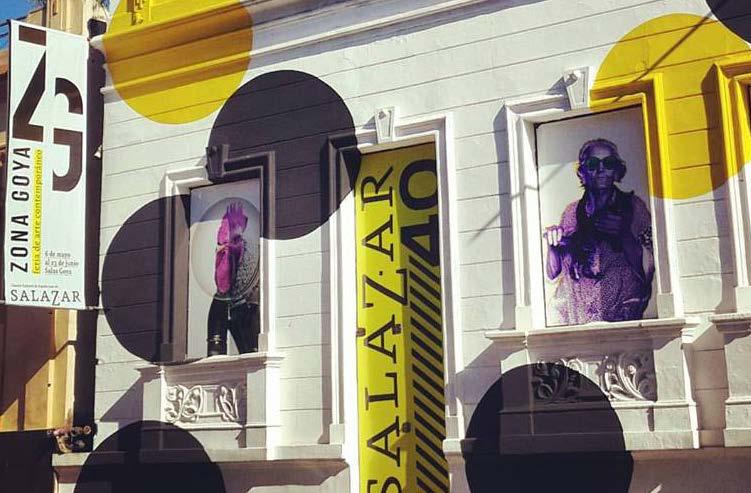
PARAGUAY Cultural Centre of Spain Juan de Salazar, Asunción
Address
Calle Luis Alberto de Herrera 834, casi Tacuary, CP 1506, Asunción
Opened
1976
Web
http://www.juandesalazar.org.py/










